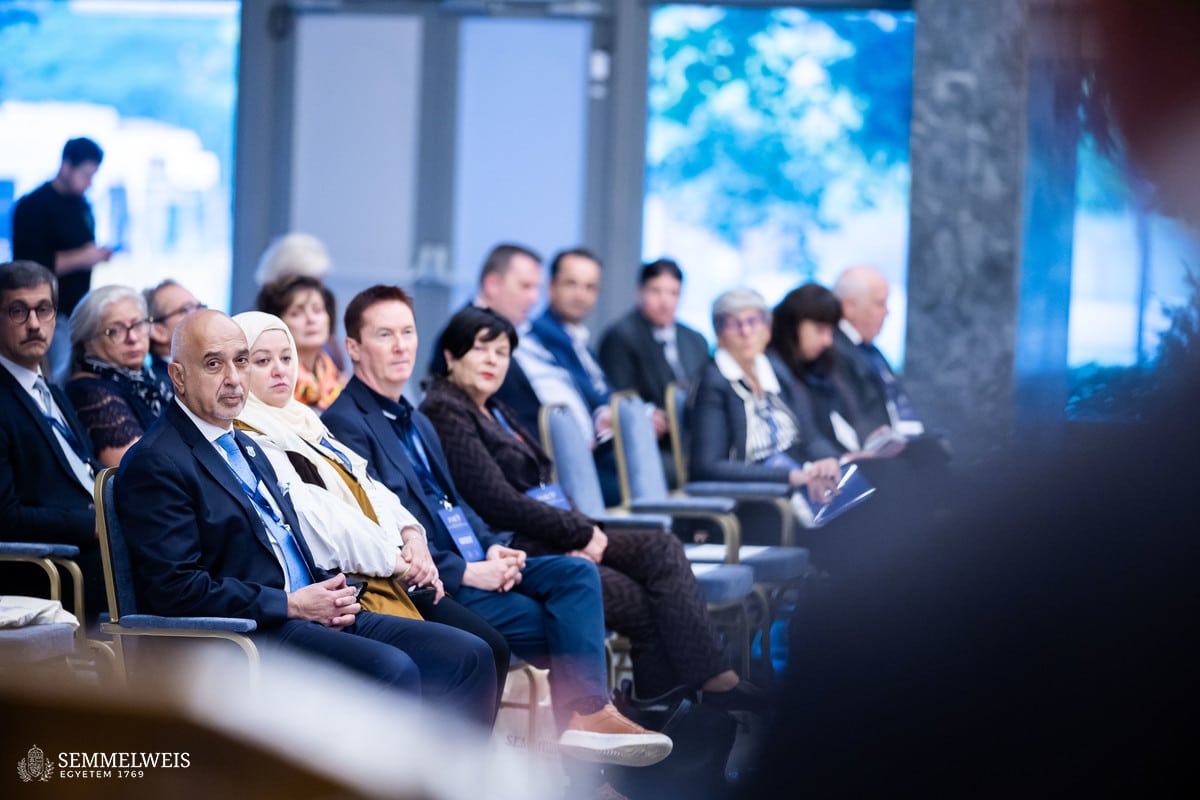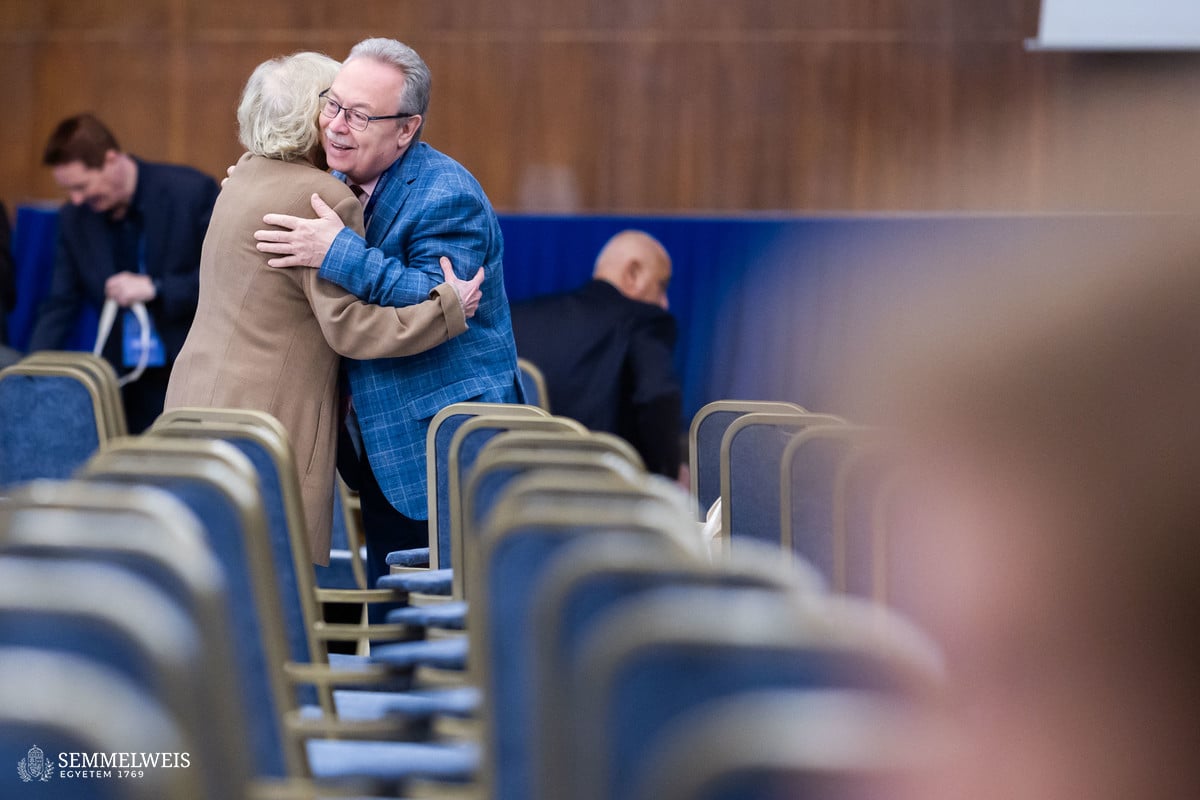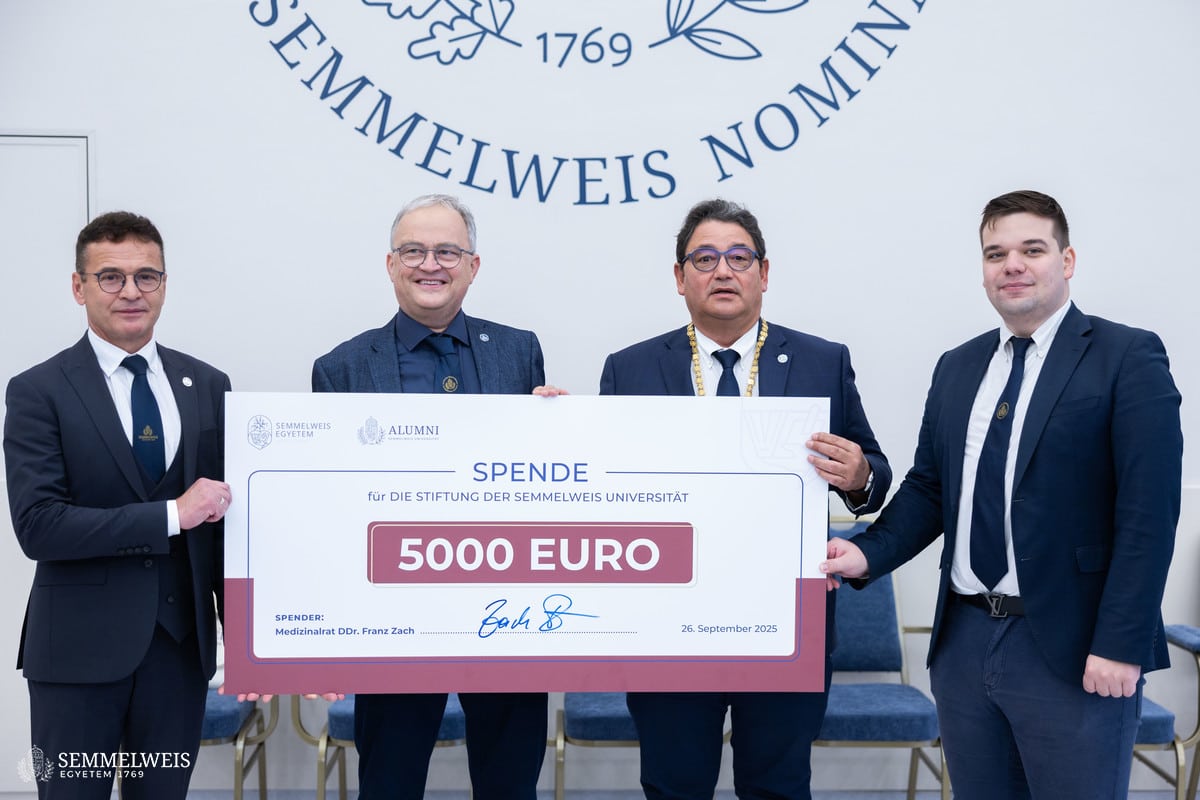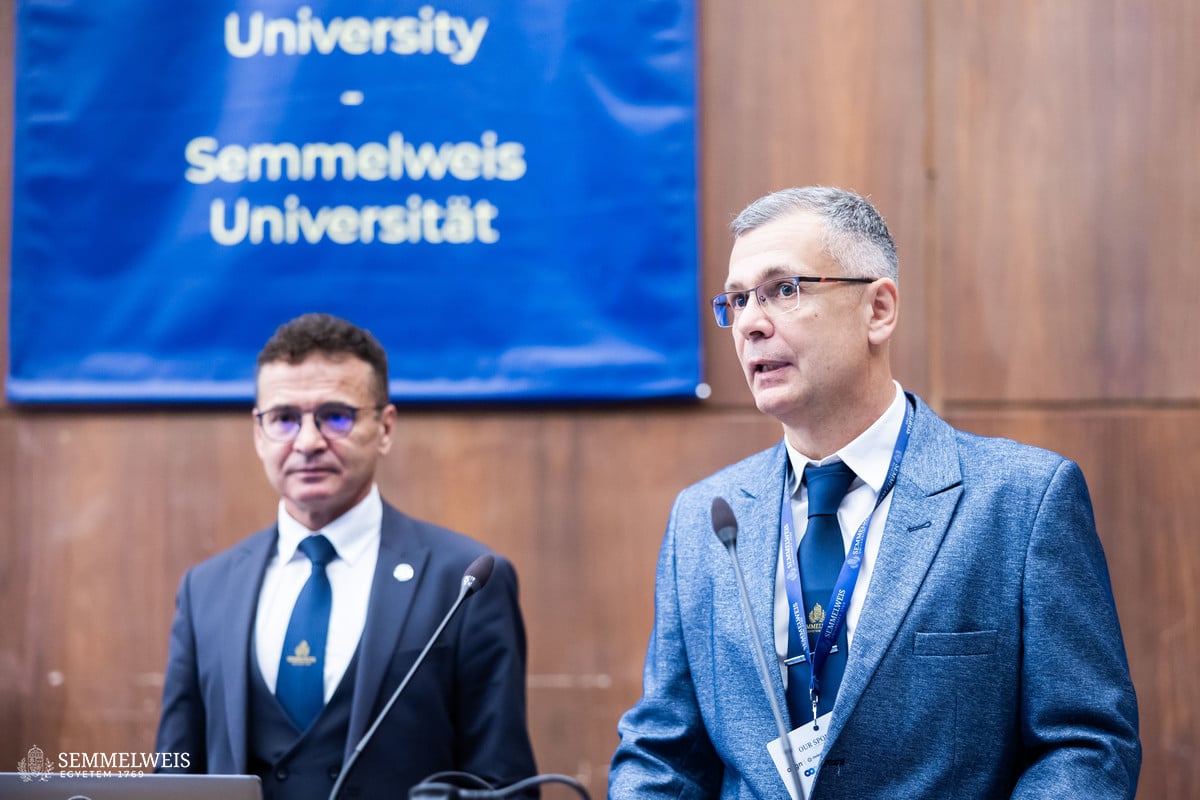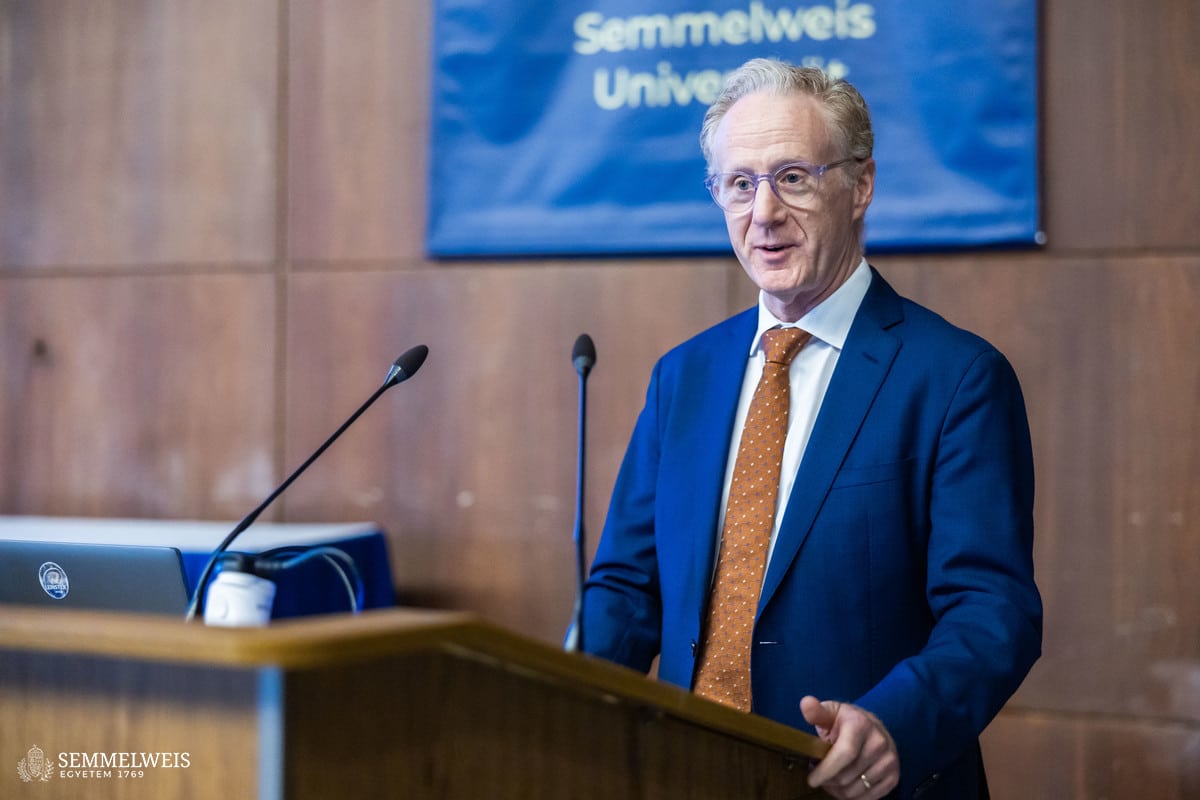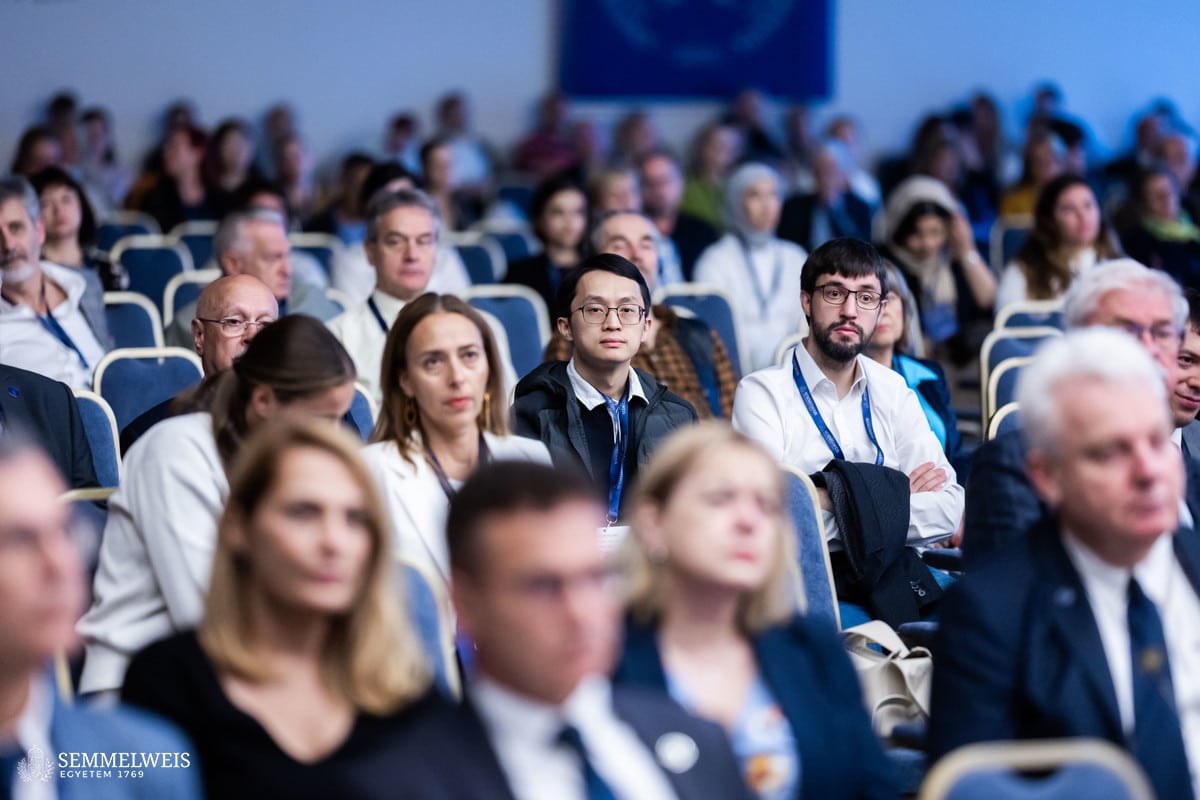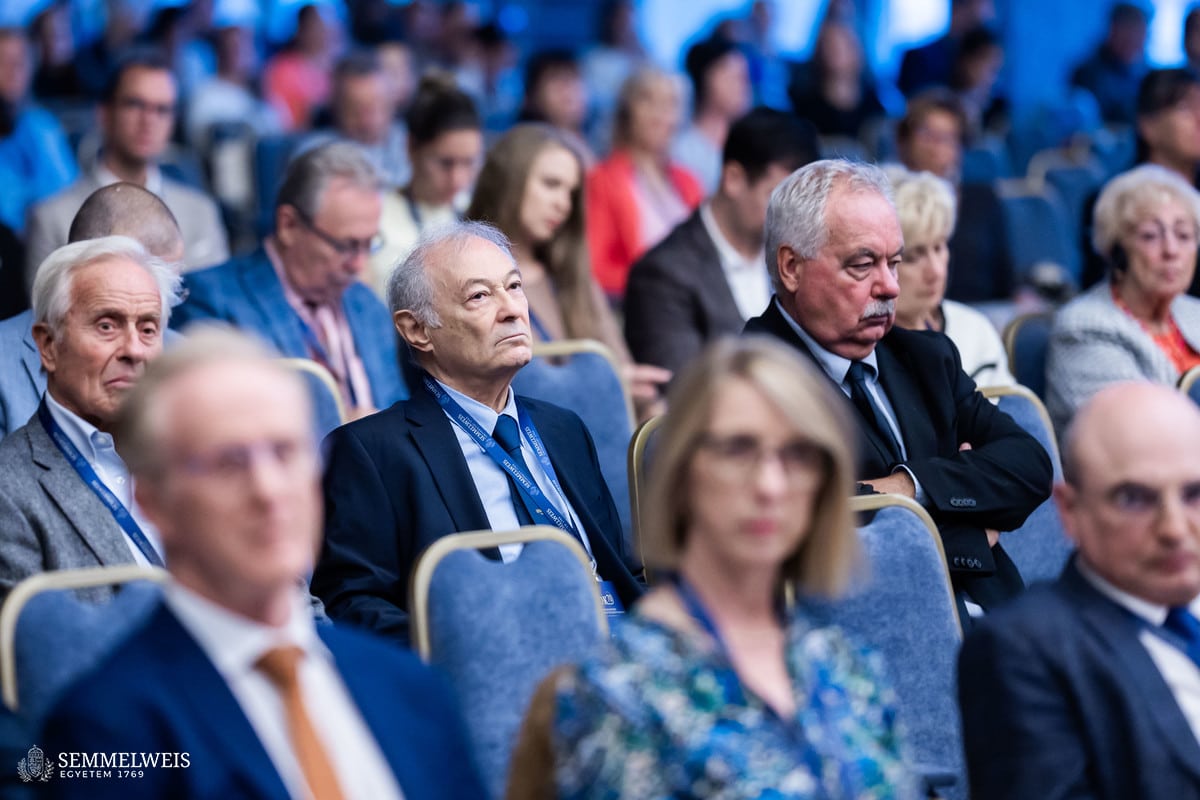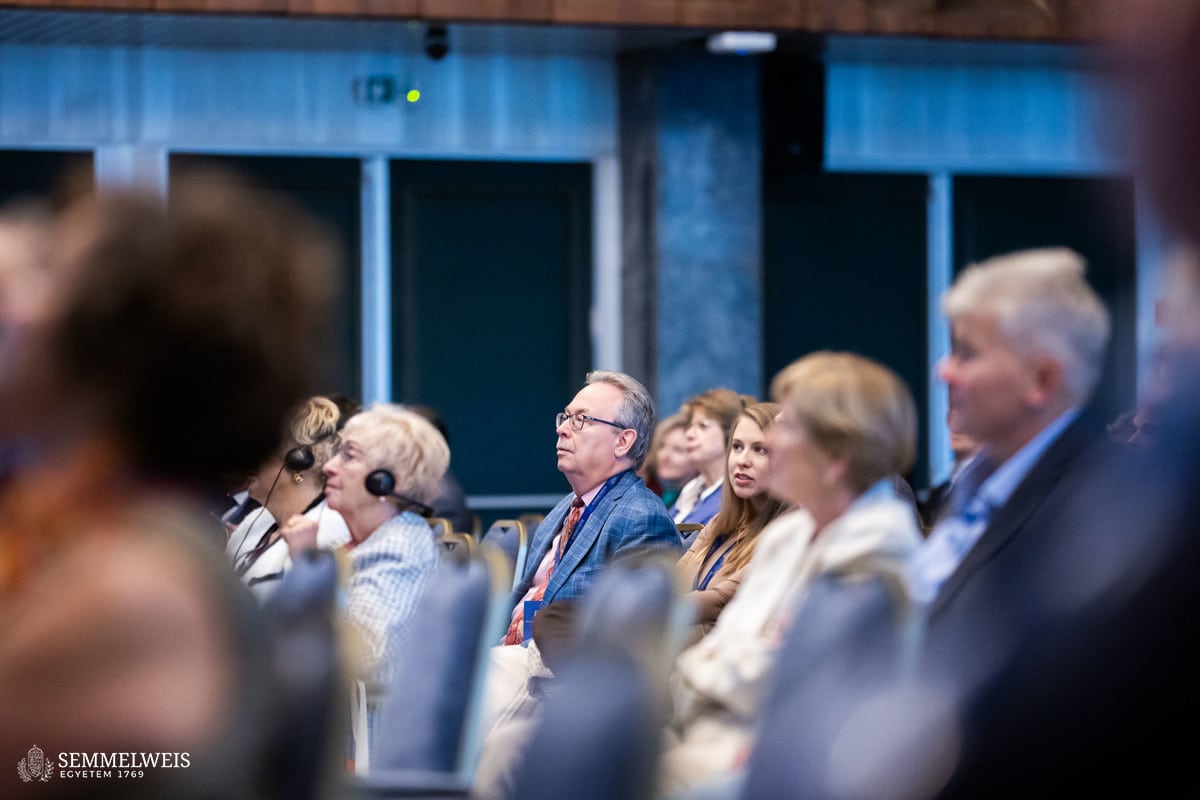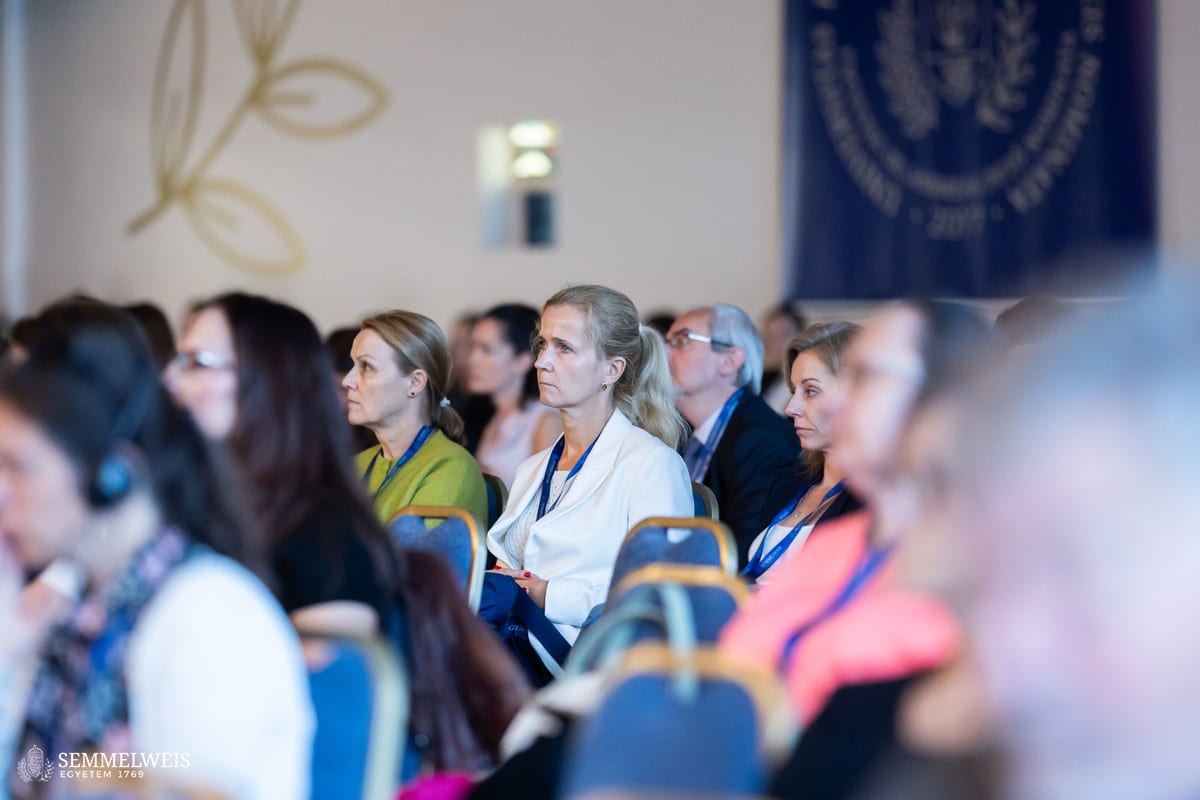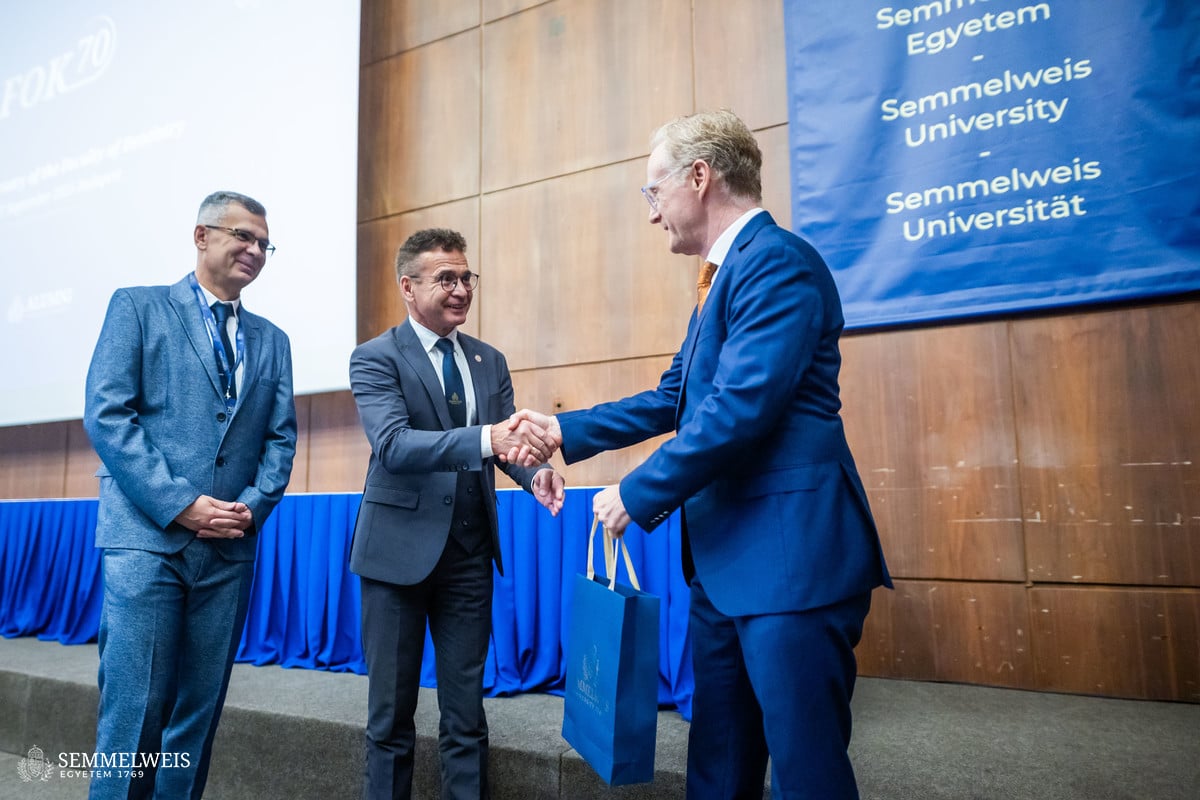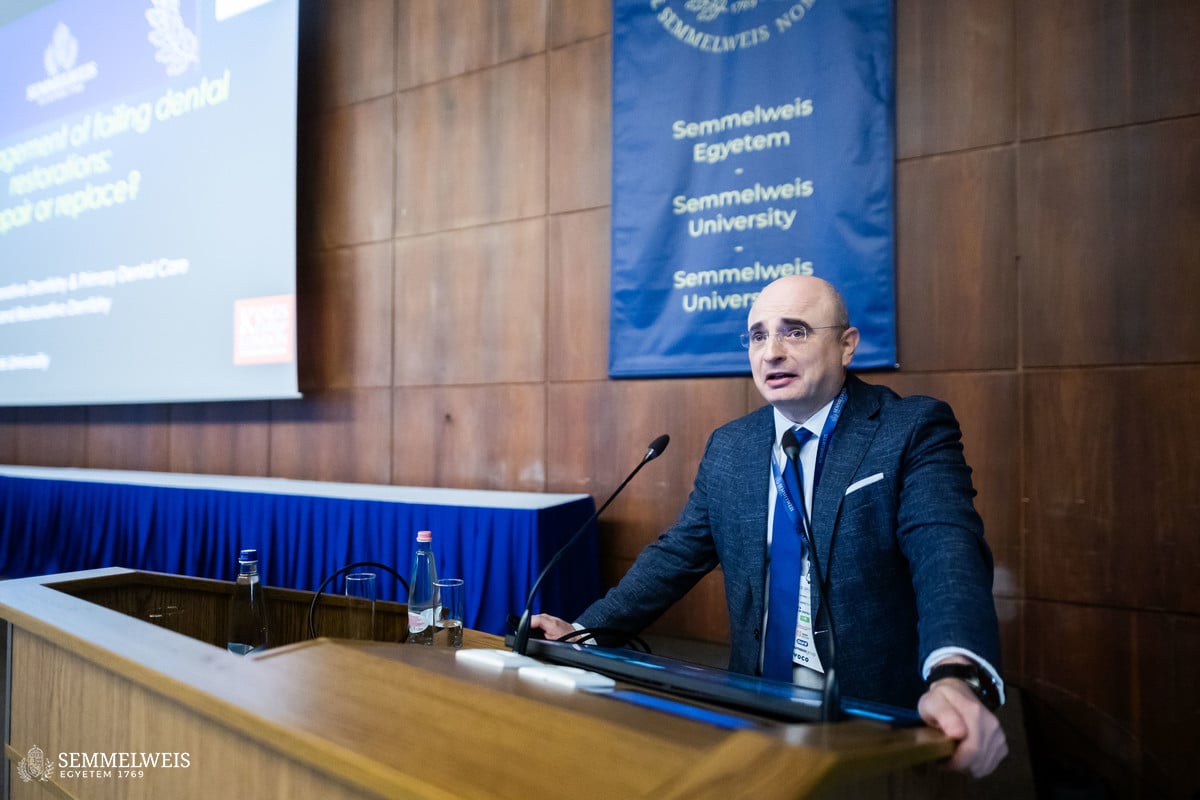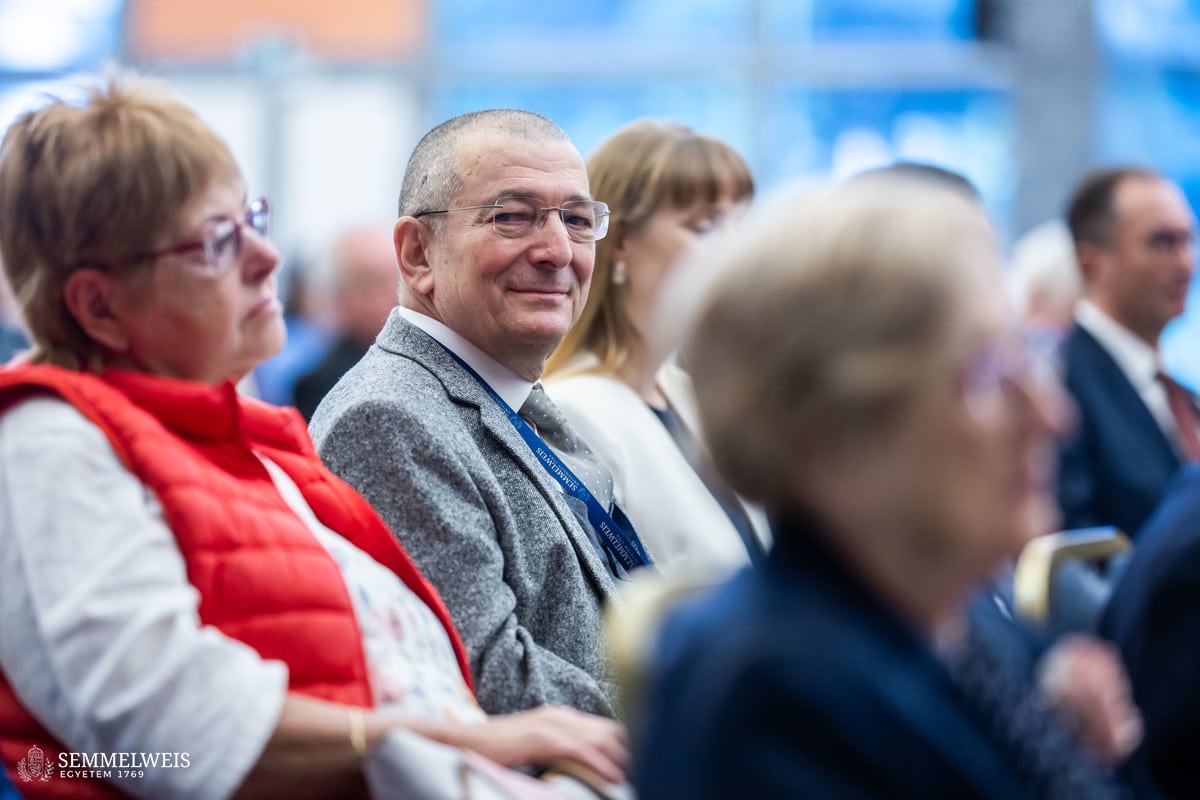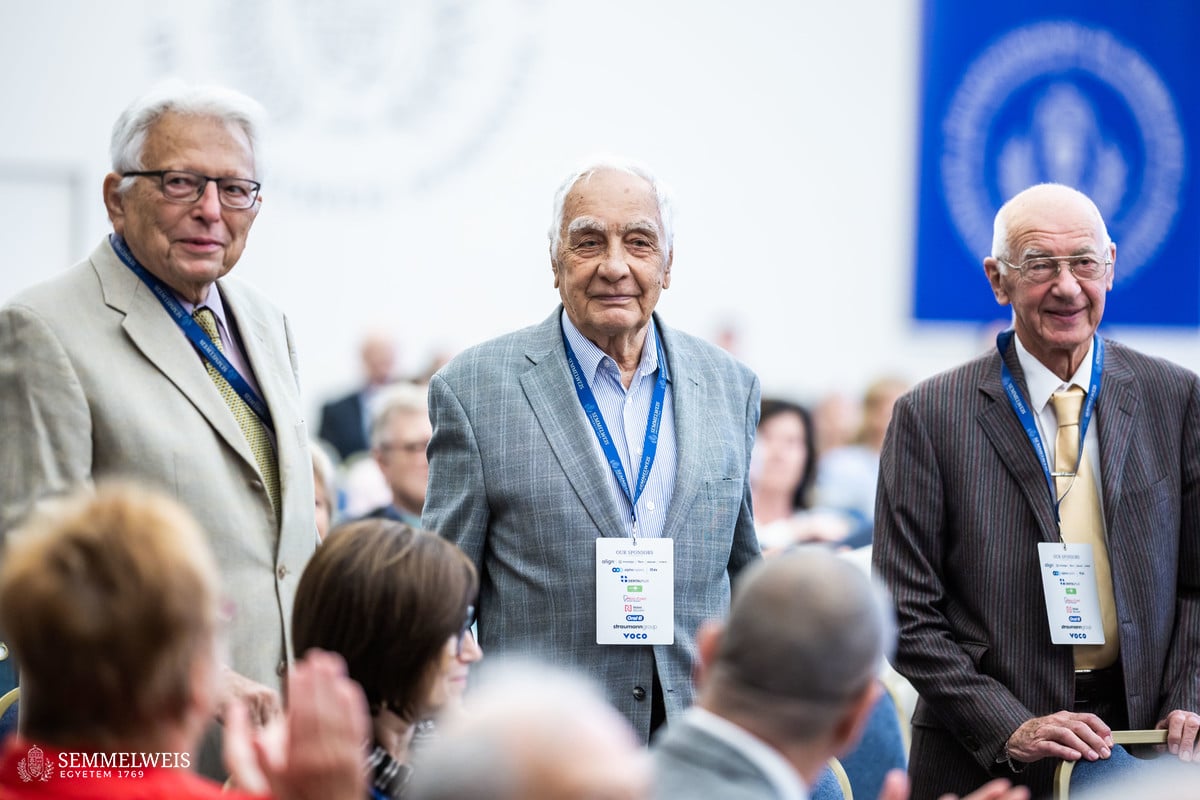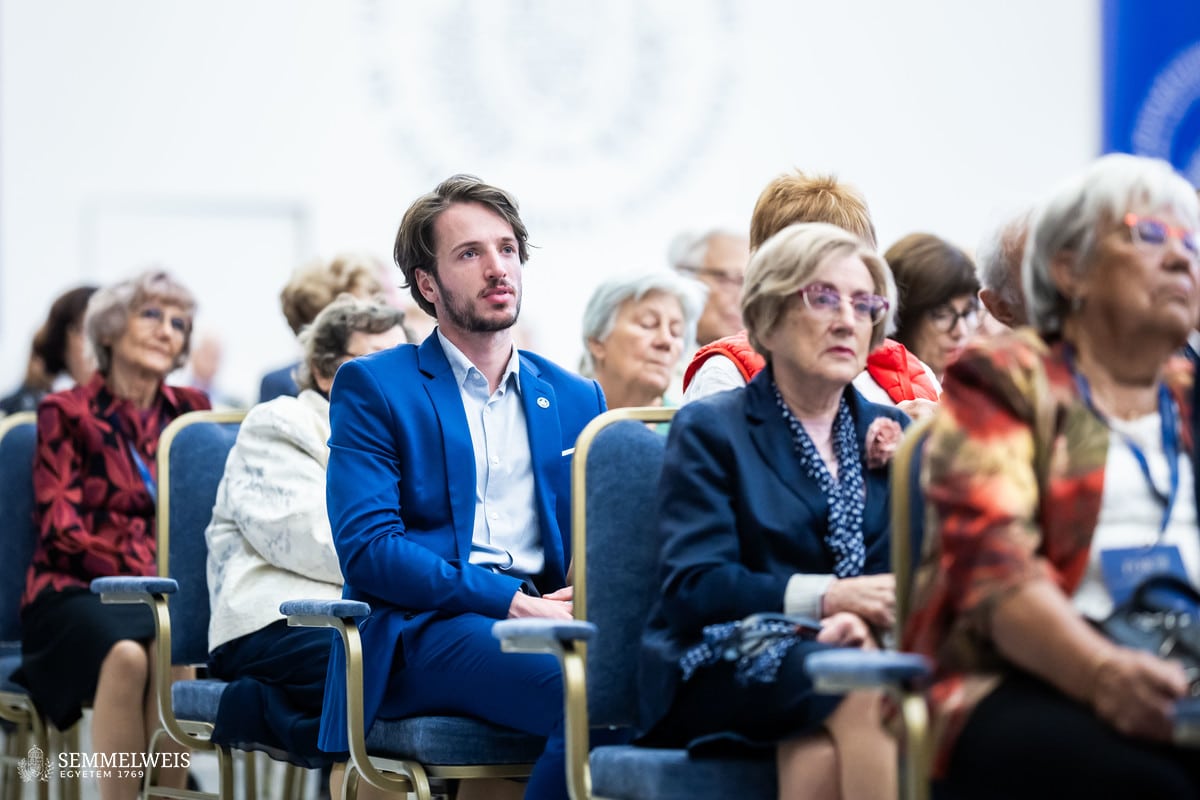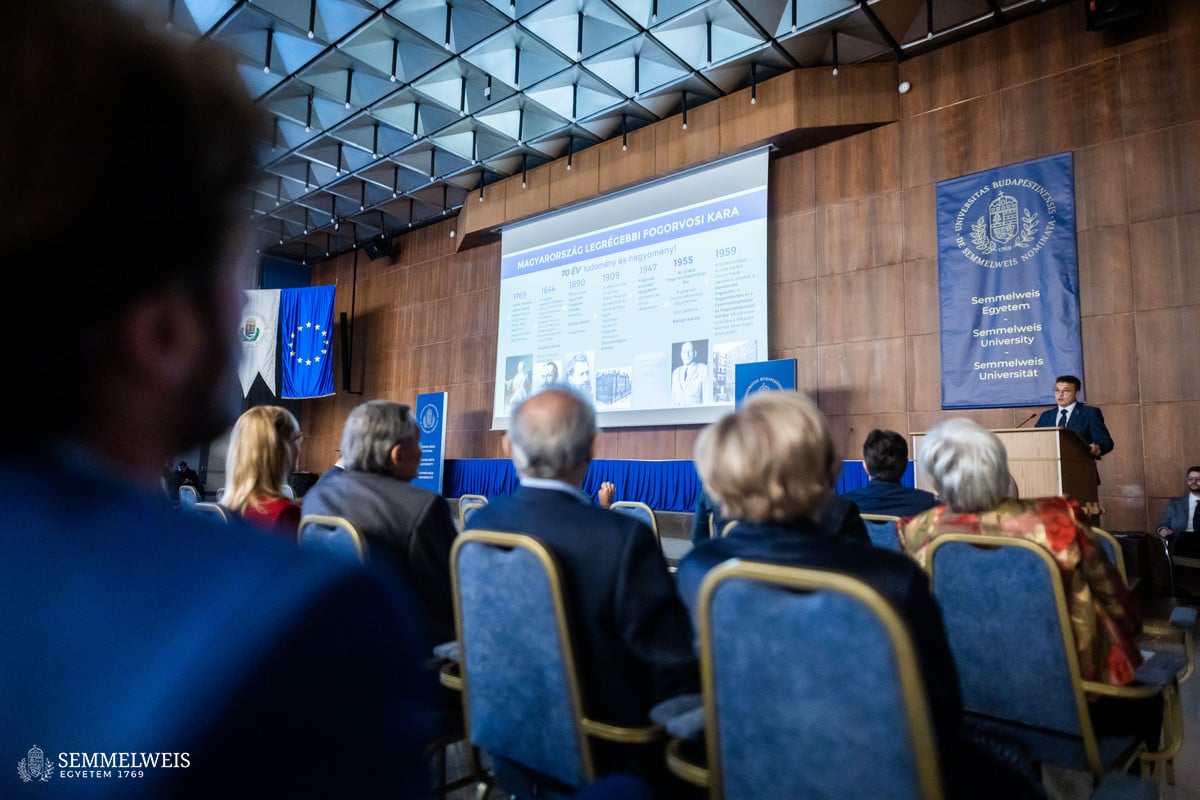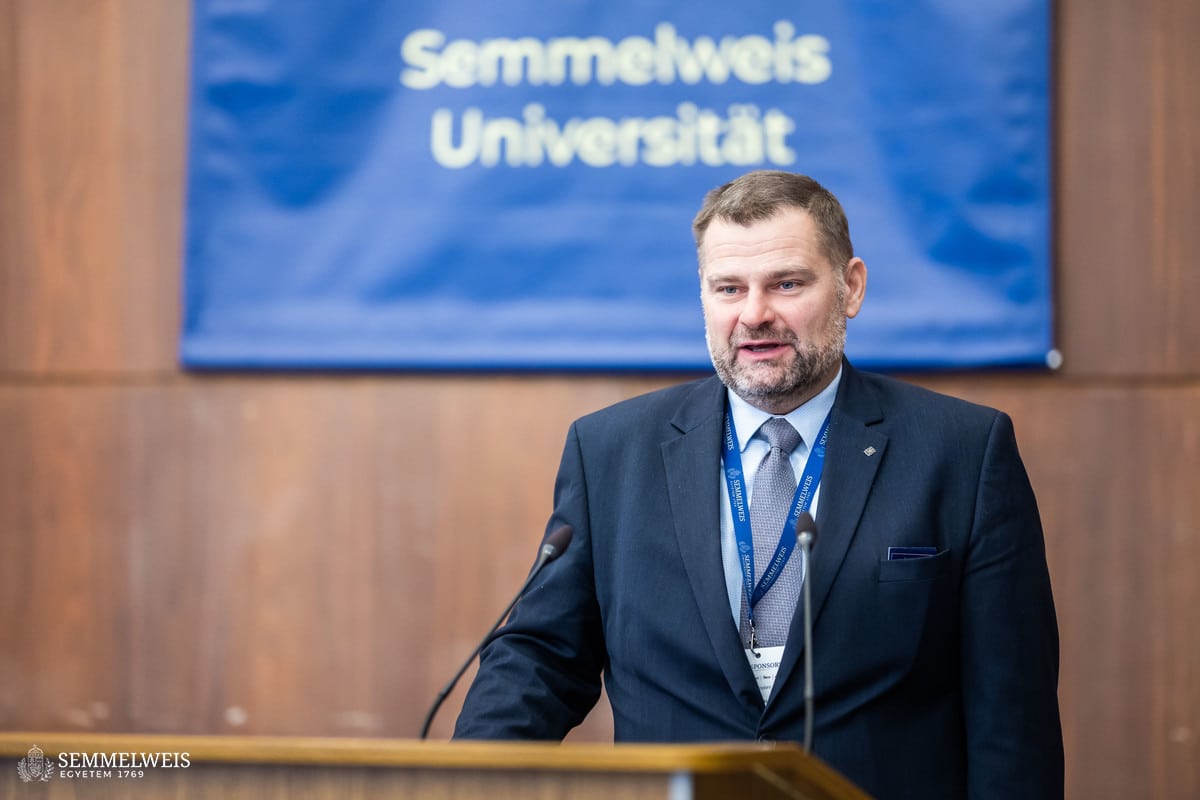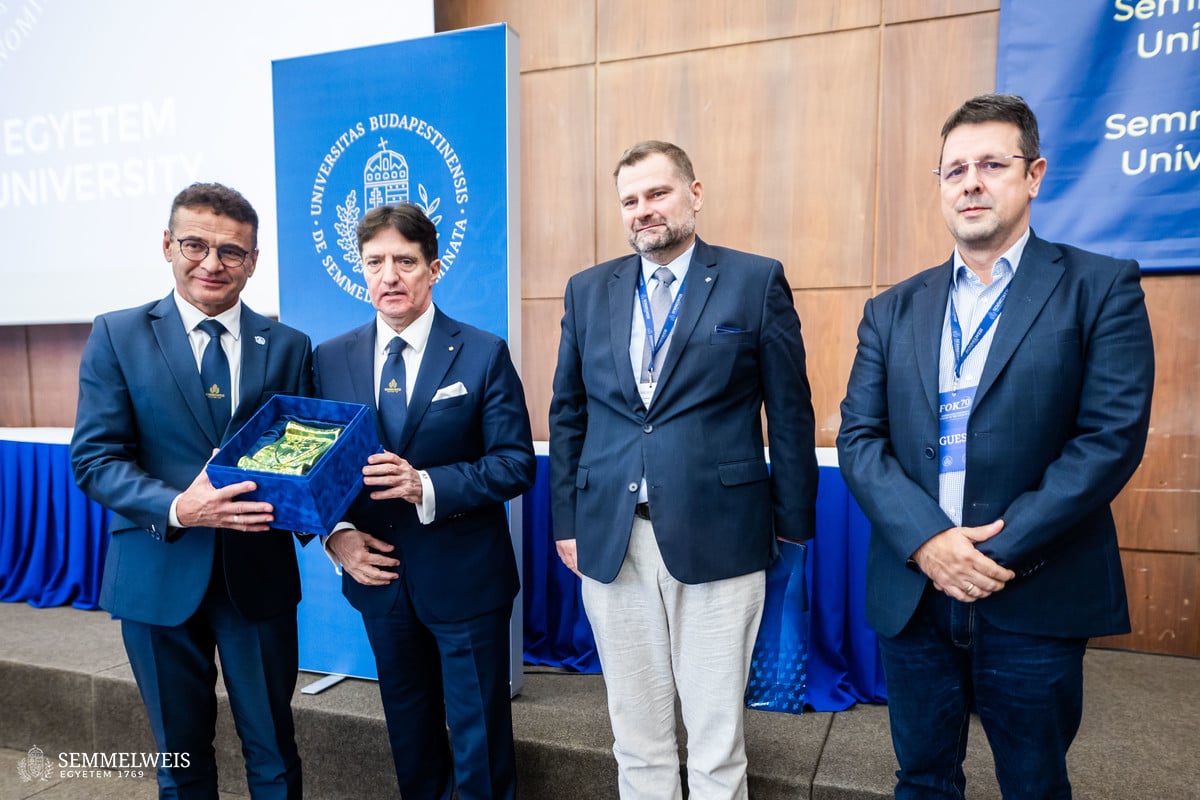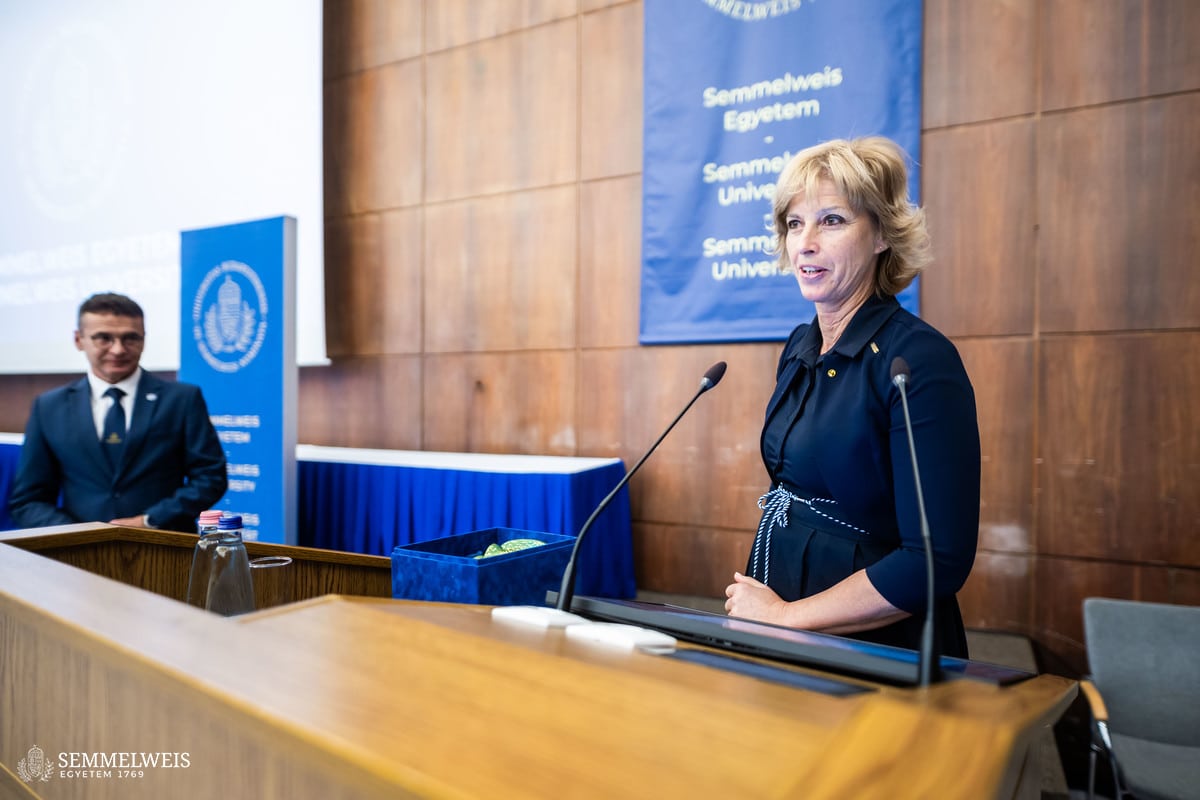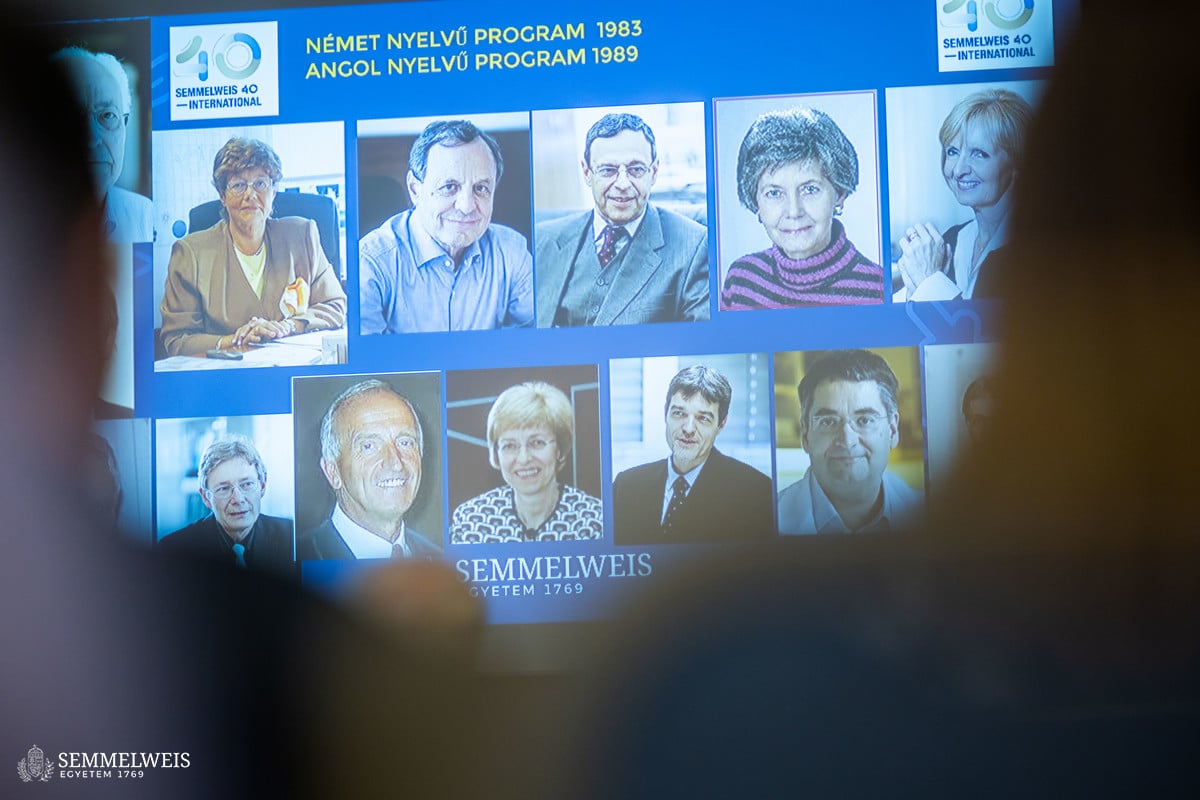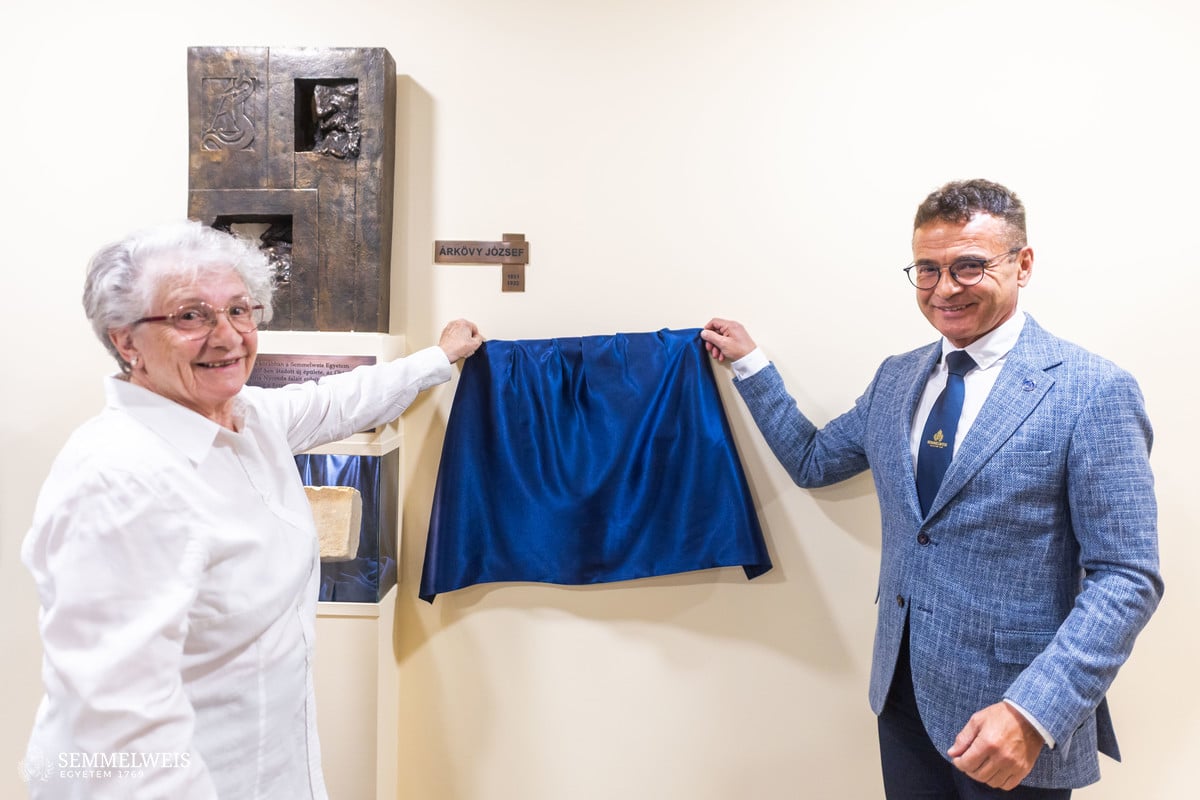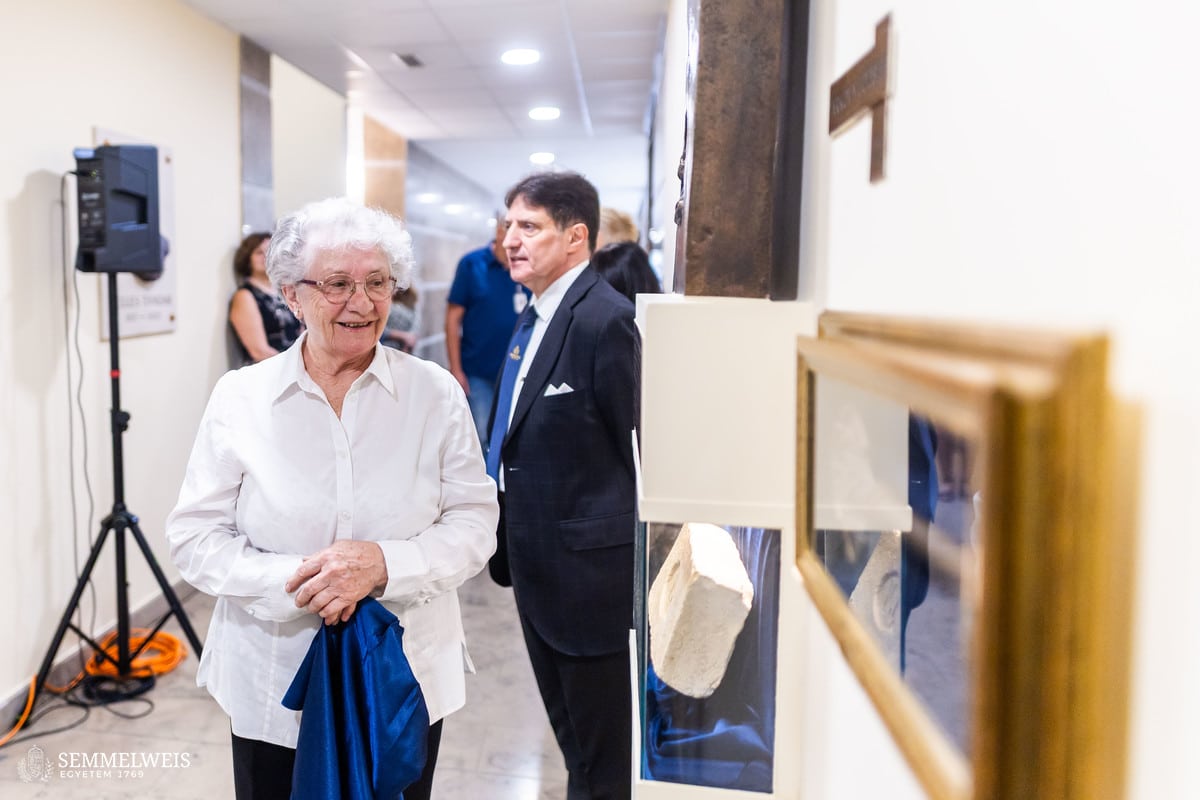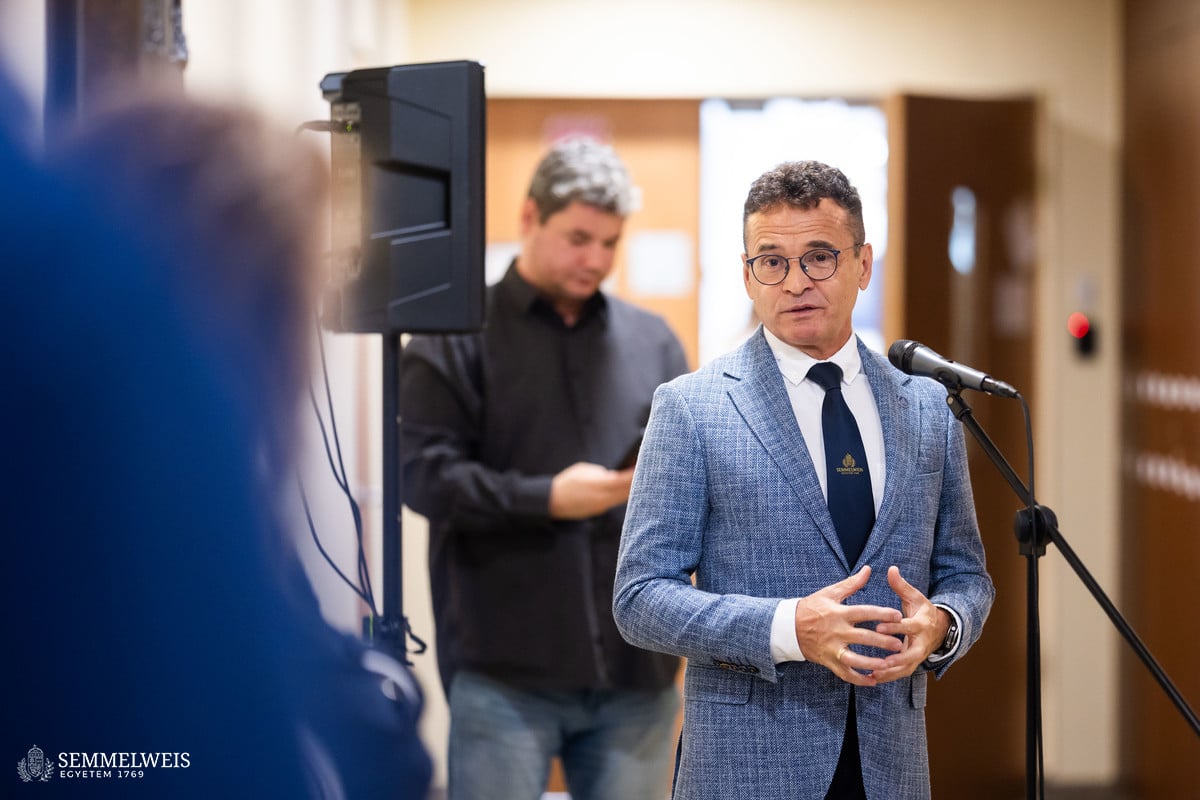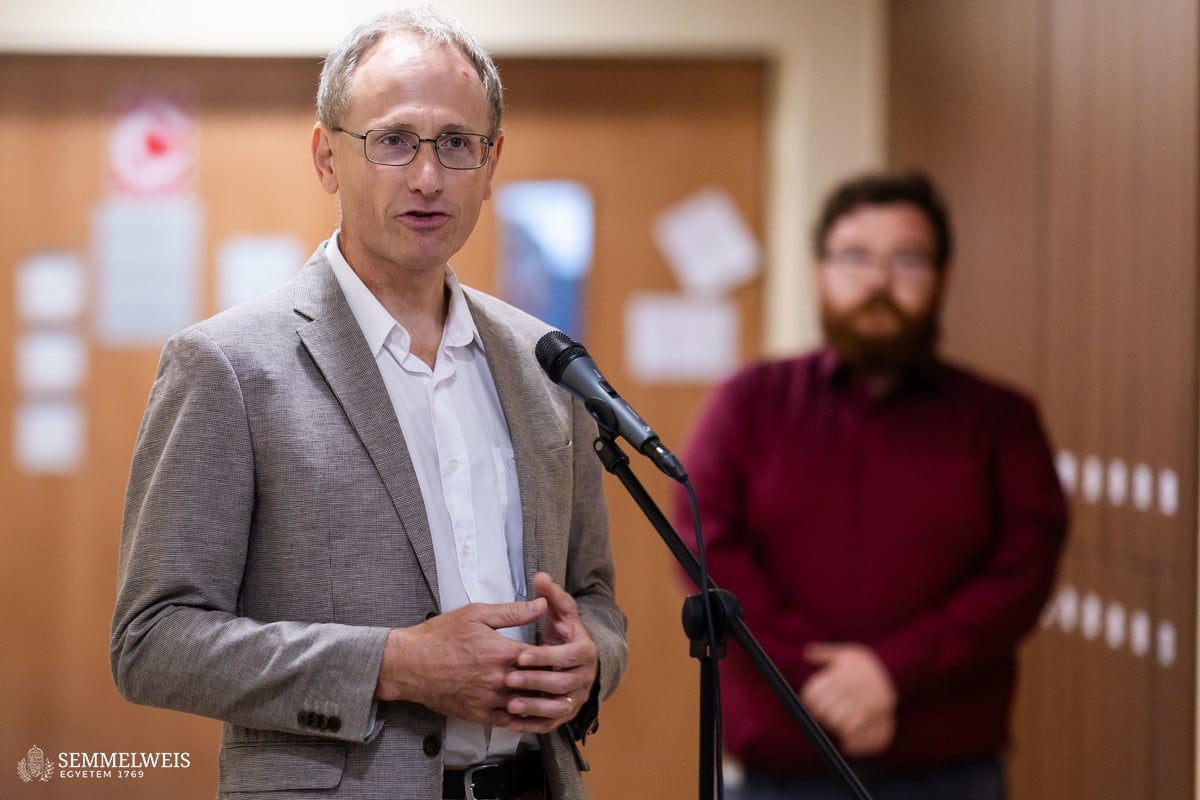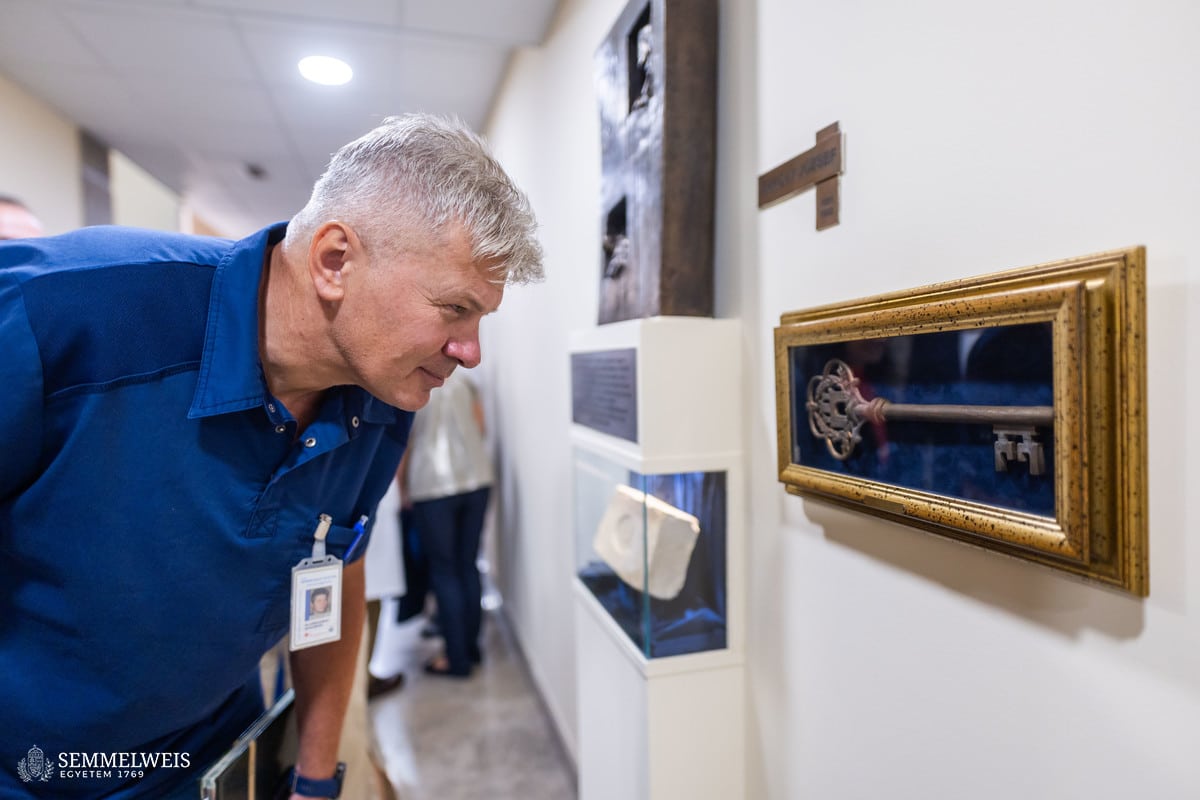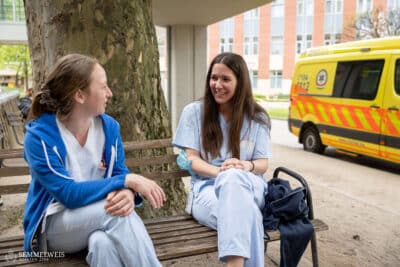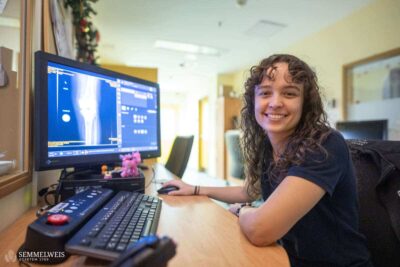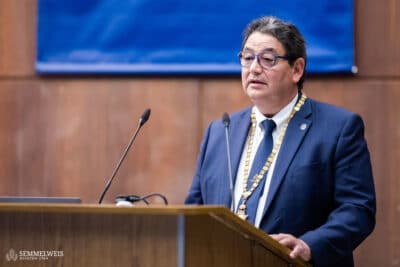 At the opening ceremony of the two-day anniversary celebration, Rector Dr. Béla Merkely made reference to the founders, leaders, and influential figures of FOK, thanks to whom, more than 150 years ago – at that time still within the framework of the medical faculty – university education in dentistry began in Hungary, and exactly 70 years ago the discipline was given its rightful place through the establishment of the independent Faculty of Dentistry. “The pioneering work of our great predecessors laid the foundations for what is now one of Europe’s largest and most advanced dental training and patient care centers,” said the rector, emphasizing that the clinics of the faculty treat 300,000 patients annually, and that nearly 8,000 dental degrees have been awarded since 1955, 1,500 of which were conferred on international students. Among recent developments, he mentioned the expansion of the Department of Preclinical Dentistry at the Dental Education Center and the refurbishment of the Department of Public Dental Health. “In addition to the facilities, education is also keeping pace with the times, with the Faculty of Dentistry having been at the forefront of practice-oriented curricular reform since the beginning,” he said. Speaking about the quality of university education, Dr. Béla Merkely recalled that the 2024 Shanghai Ranking lists Semmelweis University among the world’s top 300 higher education institutions in the field of dentistry.
At the opening ceremony of the two-day anniversary celebration, Rector Dr. Béla Merkely made reference to the founders, leaders, and influential figures of FOK, thanks to whom, more than 150 years ago – at that time still within the framework of the medical faculty – university education in dentistry began in Hungary, and exactly 70 years ago the discipline was given its rightful place through the establishment of the independent Faculty of Dentistry. “The pioneering work of our great predecessors laid the foundations for what is now one of Europe’s largest and most advanced dental training and patient care centers,” said the rector, emphasizing that the clinics of the faculty treat 300,000 patients annually, and that nearly 8,000 dental degrees have been awarded since 1955, 1,500 of which were conferred on international students. Among recent developments, he mentioned the expansion of the Department of Preclinical Dentistry at the Dental Education Center and the refurbishment of the Department of Public Dental Health. “In addition to the facilities, education is also keeping pace with the times, with the Faculty of Dentistry having been at the forefront of practice-oriented curricular reform since the beginning,” he said. Speaking about the quality of university education, Dr. Béla Merkely recalled that the 2024 Shanghai Ranking lists Semmelweis University among the world’s top 300 higher education institutions in the field of dentistry.
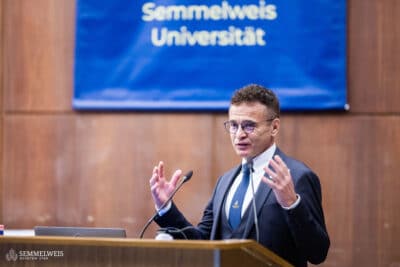 As an introduction to Friday’s scientific program, Dean Dr. Gábor Gerber also briefly greeted the audience. As he said, the series of celebratory events provides a comprehensive picture of the work of the faculty’s dedicated lecturers and students practicing all over the world, as it is thanks to them that the faculty has achieved success in educational rankings. Speaking about the future, he emphasized that progress could only be achieved if universities cooperated with each other and with market actors, and that the scientific symposium, which was part of the ceremony, also served this purpose.
As an introduction to Friday’s scientific program, Dean Dr. Gábor Gerber also briefly greeted the audience. As he said, the series of celebratory events provides a comprehensive picture of the work of the faculty’s dedicated lecturers and students practicing all over the world, as it is thanks to them that the faculty has achieved success in educational rankings. Speaking about the future, he emphasized that progress could only be achieved if universities cooperated with each other and with market actors, and that the scientific symposium, which was part of the ceremony, also served this purpose.
As part of the scientific program, in the international section presenting 21st-century dental innovations, Brian O’Connell, Dean of Health Sciences at Trinity College Dublin, gave a talk on oral health, tooth loss, and aging, while Igor Blum, Clinical Lead at King’s College Hospital, spoke about dilemmas posed by dental restorations. Forensic dental expert Kenneth W. Aschheim presented on artificial intelligence and the future of forensic odontology, while Ulrich Joos, Professor and Head of Department at the University of Münster, discussed the past 70 years of orofacial rehabilitation. Oral and maxillofacial surgeon Oliver Blume focused on new possibilities in bone reconstruction, and Kaan Orhan, Dean of the Faculty of Dentistry at Ankara University, explored the issue of contemporary imaging modalities for dental implants.
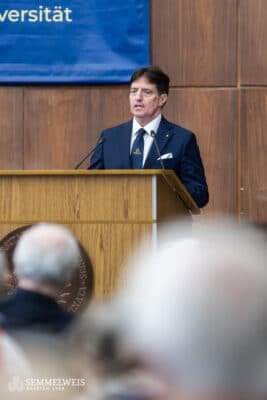 At Saturday’s commemorative meeting, Vice-Rector for Educational Affairs Dr. Péter Hermann was the first to welcome the participants. He pointed out that although the independent Faculty of Dentistry was established 70 years ago, university education in dentistry had a tradition dating back more than 180 years, when dental knowledge was taught as part of general medicine. Dentists who graduate from Semmelweis University receive a Doctor medicinae dentarie, or Dr. med. dent. degree, which shows that medical knowledge and medical training are the most important foundations, the vice-rector added, noting that dental subjects are part of the curriculum already in the first two years. The faculty’s traditionally practice-oriented education has remained virtually unchanged for decades, and its success is demonstrated by the fact that the university’s leadership has taken the best practices established here as a basis for the curriculum reform across the entire university. Dr. Péter Hermann also shared some facts from the 70-year history of FOK. For instance, while there was only one dental clinic in the early 1900s, today there are 11 clinical institutes and departments involved in teaching students and in patient care. In 1955, there were ten graduating dentists, while in July this year, more than 170 dentistry students were awarded their degrees, of whom nearly 70 were international students.
At Saturday’s commemorative meeting, Vice-Rector for Educational Affairs Dr. Péter Hermann was the first to welcome the participants. He pointed out that although the independent Faculty of Dentistry was established 70 years ago, university education in dentistry had a tradition dating back more than 180 years, when dental knowledge was taught as part of general medicine. Dentists who graduate from Semmelweis University receive a Doctor medicinae dentarie, or Dr. med. dent. degree, which shows that medical knowledge and medical training are the most important foundations, the vice-rector added, noting that dental subjects are part of the curriculum already in the first two years. The faculty’s traditionally practice-oriented education has remained virtually unchanged for decades, and its success is demonstrated by the fact that the university’s leadership has taken the best practices established here as a basis for the curriculum reform across the entire university. Dr. Péter Hermann also shared some facts from the 70-year history of FOK. For instance, while there was only one dental clinic in the early 1900s, today there are 11 clinical institutes and departments involved in teaching students and in patient care. In 1955, there were ten graduating dentists, while in July this year, more than 170 dentistry students were awarded their degrees, of whom nearly 70 were international students.
“The Faculty of Dentistry at Semmelweis University is the pillar that supports dental education in Hungary, helps establish it in cooperation with society, and has made and continues to make our dental community known in the international world,” said Dean Dr. Gábor Gerber. He thanked the former leaders of the faculty, the professors, and the teachers, but also highlighted the role of all the residents, specialists, assistants, as well as administrative and financial staff working here, whose daily activities are essential to a successful operation. He gave a special welcome to the former students who were the first to begin their studies at the independent Faculty of Dentistry in 1955. As he said, the international speakers participating in the anniversary celebration on Friday also indicated that the faculty enjoyed worldwide recognition, which was supported by its achievements in higher education rankings.
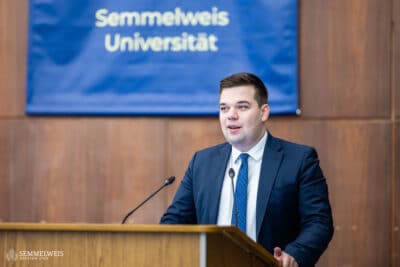 In his welcome speech, Dr. Tamás Hegedüs, Head of the Directorate of International Relations and Alumni Affairs at Semmelweis University, summarized how many anniversaries the university will be celebrating in 2025. In addition to the Faculty of Dentistry, the Faculty of Pharmaceutical Sciences (GYTK) is also celebrating its 70th anniversary, the Faculty of Health Sciences (ETK) was established 50 years ago, and conductive teacher training began at the András Pető Faculty (PAK) exactly 55 years ago. He said that the organization of the anniversary event had been underway for a year, emphasizing that it was important to them that the celebration not only showcase the international character and scientific achievements of the faculty, but also present to their guests the welcoming community and family atmosphere that characterize it.
In his welcome speech, Dr. Tamás Hegedüs, Head of the Directorate of International Relations and Alumni Affairs at Semmelweis University, summarized how many anniversaries the university will be celebrating in 2025. In addition to the Faculty of Dentistry, the Faculty of Pharmaceutical Sciences (GYTK) is also celebrating its 70th anniversary, the Faculty of Health Sciences (ETK) was established 50 years ago, and conductive teacher training began at the András Pető Faculty (PAK) exactly 55 years ago. He said that the organization of the anniversary event had been underway for a year, emphasizing that it was important to them that the celebration not only showcase the international character and scientific achievements of the faculty, but also present to their guests the welcoming community and family atmosphere that characterize it.
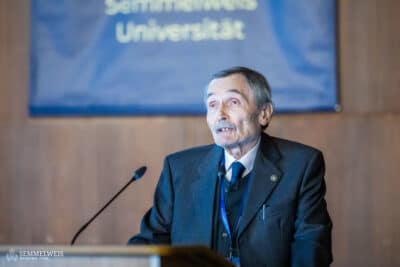 At the commemorative meeting, Dr. Péter Hermann and Dr. Gábor Gerber gave presentations detailing the 70-year history of the faculty, touching on its many aspects and achievements. Former Dean Dr. István Gera presented the history of international training, which he himself had actively participated in and helped initiate. Finally, a roundtable discussion entitled “Art, Music, Sports, Dentistry” was held with film director Dr. Gábor Herendi, who himself had graduated from FOK and then worked at the Department of Prosthodontics for several years.
At the commemorative meeting, Dr. Péter Hermann and Dr. Gábor Gerber gave presentations detailing the 70-year history of the faculty, touching on its many aspects and achievements. Former Dean Dr. István Gera presented the history of international training, which he himself had actively participated in and helped initiate. Finally, a roundtable discussion entitled “Art, Music, Sports, Dentistry” was held with film director Dr. Gábor Herendi, who himself had graduated from FOK and then worked at the Department of Prosthodontics for several years.
As part of the celebration, jubilee degrees were also presented this year: On the 70th anniversary of the establishment of the independent Faculty of Dentistry, 92 jubilarians received their certificates.
Eszter Keresztes
Translation: Dr. Balázs Csizmadia
Photos by Bálint Barta – Semmelweis University
